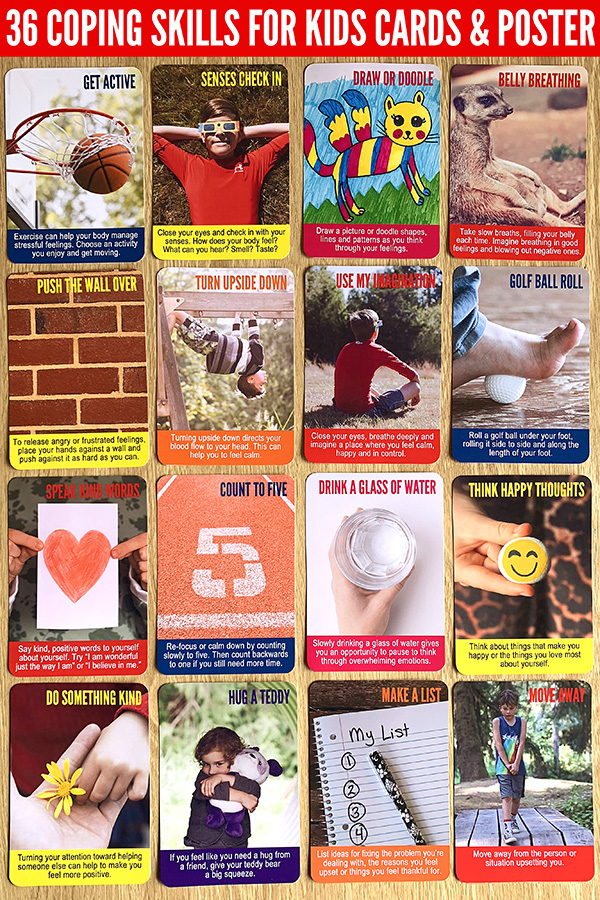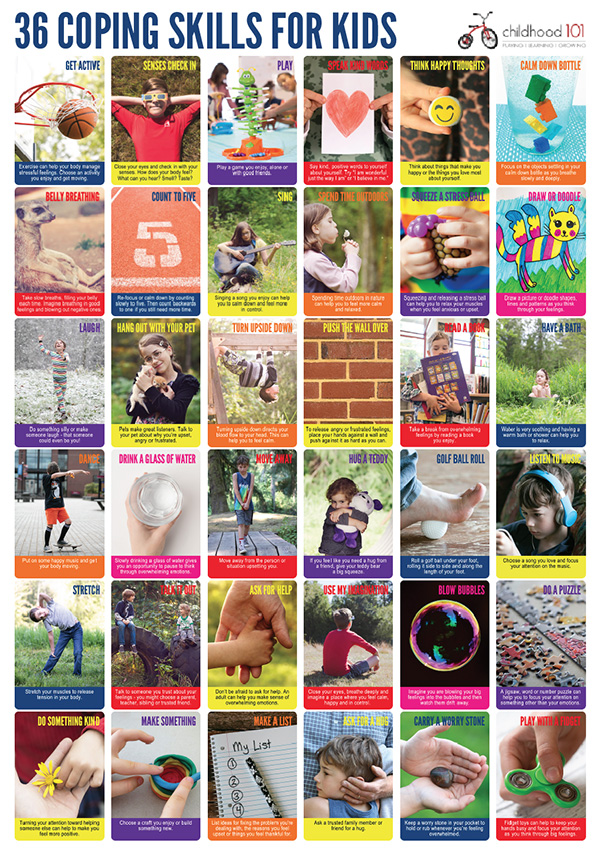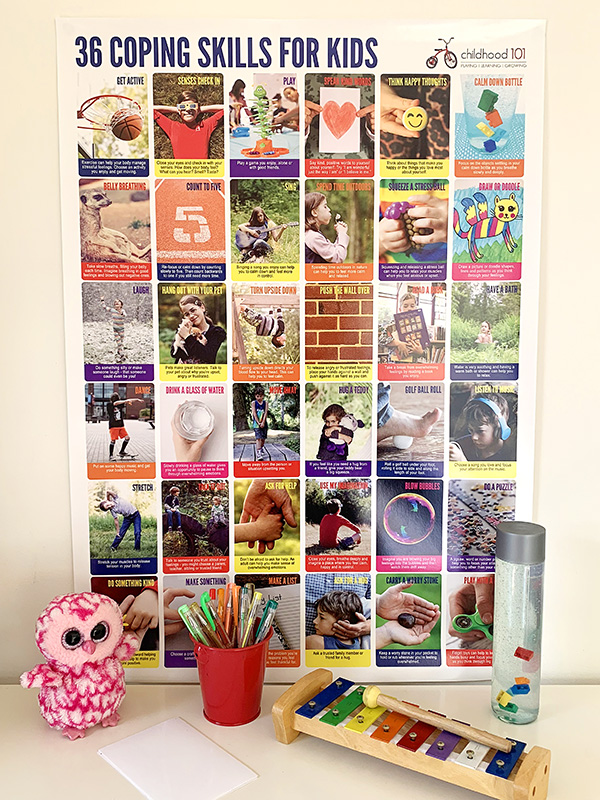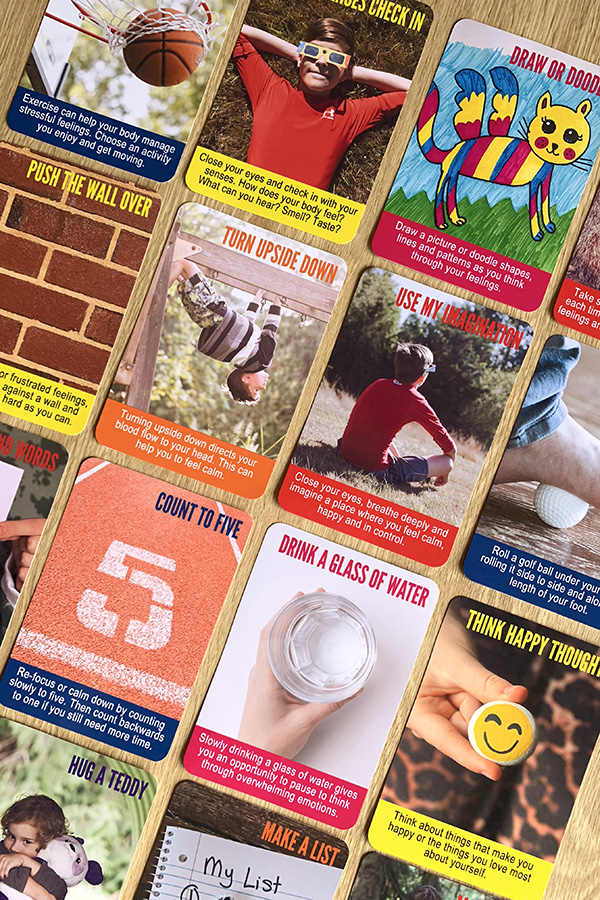Coping Skills for Kids: 36 Ways to Manage Big Feelings & Emotions
Emotions are tough to figure out even as an adult, and for kids, trying to manage feelings and emotions can be beyond overwhelming at times.
Remember when you were young and even a small disappointment was the end of the world and you didn’t quite know how to handle your feelings about it? As adults, we’ve had the chance to develop ways to cope with our emotions, even when they’re intense, but children often need extra help to navigate their feelings and find healthy ways to respond.
When you see your child struggling to manage frustration, anger, disappointment, fear, sadness, or other big emotions, using effective coping skills can assist them in working through their feelings in constructive ways.
What are Coping Skills?
Coping skills are actions and ways of thinking that can help individuals manage overwhelming emotions and the difficult situations that provoke them.
Your child will begin to learn and use a range of coping skills from the time they are born. You can assist them to build on the skills they are already using, as well as help them to discover and try out new ones.
Why ‘Calm Down!’ Often Doesn’t Help
As parents, we often find ourselves telling our kids to “calm down” or using similar phrases that indicates they should control their emotions, however in most cases the child does not even know how to comply with they request. They are in an intense emotional state and their brain is flooding their body with chemicals as part of the pre-conditioned fight or flight response;
“ ”
This is when arming your child with a small set of preferred coping skills can help them in their attempts to return to a calm state.
Enter our Coping Skills for Kids poster and card set!
The set includes a broad range of coping skills suggestions – in fact there are 36 to try, each chosen with kids in mind. The set includes ideas across five different coping styles, with suggestions for:
- Relaxation,
- Distraction,
- Physical movement,
- Emotional processing, and
- Sensory input.
Each child within a class or family will likely prefer to use some coping skills over others, their preference determined by their personality, interests and stage of emotional development. There are no right or wrong coping skills.
The 36 Coping Skills for Kids included are;
|
|
36 Coping Skills for Kids: These Things Help Me Cope With Big Emotions
Our Coping Skills for Kids are currently available in two formats – as a professionally printed poster and as a set of print-at-home cards. Each skill includes a related, high quality image to act as a visual prompt and a brief instruction for undertaking the activity.
Coping Skills for Kids Poster
The Coping Skills for Kids poster is available here via RedBubble. RedBubble is a print to order service so your order will be managed by RedBubble and printed and dispatched by a local-to-you printing company. The poster is available in three sizes (the medium sized poster is shown in the images on this page) with a semi-gloss finish. The price is calculated by RedBubble and displayed on their site in your local currency.
Coping Skills for Kids Cards
The Coping Skills Cards are available as an instant download PDF for you to print at home. I strongly suggest printing these onto semi-gloss photo paper and laminating for durability.
Available for $9US, you can purchase the Coping Skills Cards here.





Hi, my son is 11 years old I will love to learn and teach him
I teach in an Intensive Behavioral Unit. This will be a useful tool for my students.